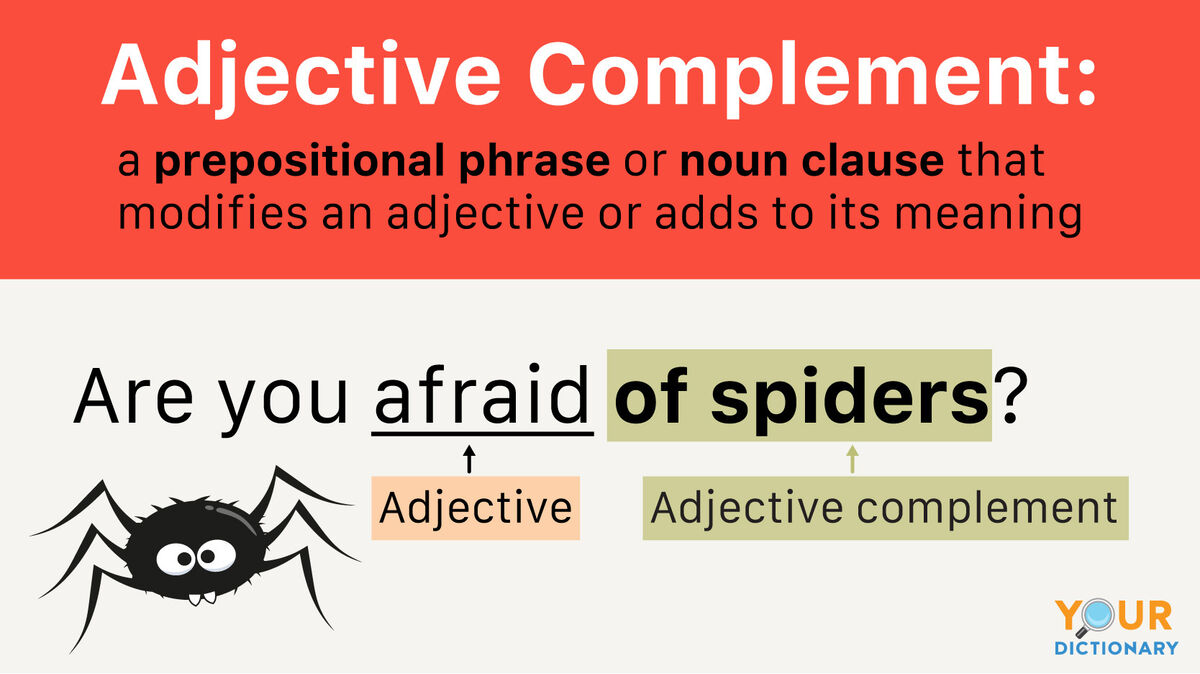

You know what an adjective is, but what is an adjective complement? Simply put, it’s a clause or phrase that modifies an adjective or adds to its meaning. An adjective complement can be a noun clause or a prepositional phrase.
Adjective complements are an important aspect of English grammar. An adjective complement (also called an adjective phrase complement) is defined as a functional part of a sentence that completes the meaning of, or complements, an adjective or adjective phrase.
Adjective complements provide information that makes a word or group of words function as an adjective in a clause or sentence. They are usually paired with predicative adjectives, which are adjectives that come after a linking verb and describe the subject. If the meaning of an adjective is unclear as written, then an adjective complement is needed.
Adjective complements can take the form of a noun clause or a prepositional phrase.
A noun clause is simply two or more words that function as a noun. It should have a subject and a verb, and, since it takes the place of a noun, it’s a dependent clause and cannot stand alone. A noun clause starts with the words “that," “how,” “if,” and the wh- words “what,” “when,” “why,” "who," and "where."
Examples of noun clauses include:
A prepositional phrase starts with a preposition — such as “with,” “about,” “on,” or “in” — and is followed by a noun, pronoun, noun phrase, pronoun phrase, or noun clause.
Examples of prepositional phrases include: